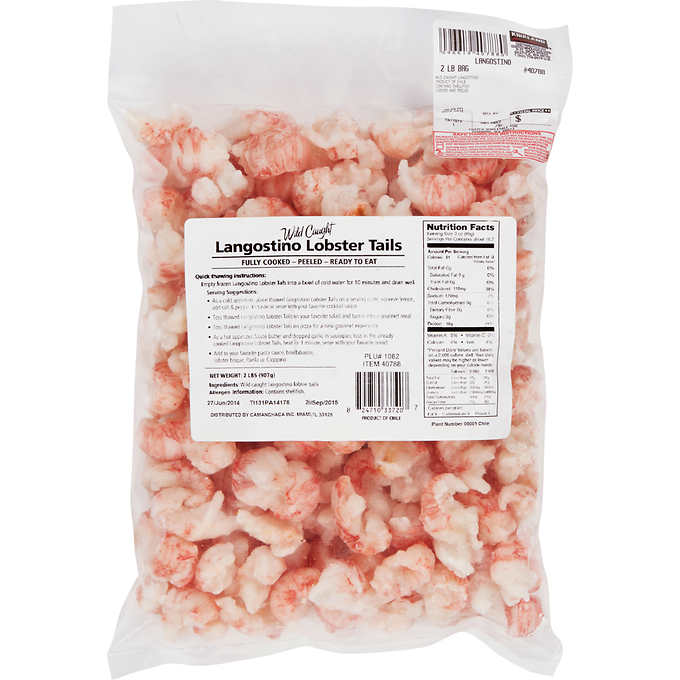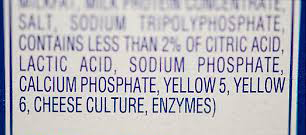Source: Thailand Medical News Nov 23, 2019 6 years, 1 month, 1 week, 4 days, 17 hours, 15 minutes ago
Whenever I go shopping at the hypermarkets in Bangkok, I always tend to neglect to read the ingredient labels on my
frozen shrimp bags.
 Frozen shrimp
Frozen shrimp is a staple in my home. Yes, I know this is
Thailand and fresh seafood is easily available and cheap. The fresh ones are more tasty but for person like me who is ever too busy with my online news projects, I do not have the time to peel, devein and clean them for cooking. There's always a bag in the freezer for quick and easy dinners like grilled and spiced shrimp over rice, shrimp fajitas, scampi ,shrimp Alfredo, garlic prawns or simply dumping them into any Thai curry premixes.
Until recently, I didn't think to put any thought into which bag to grab from the freezer aisle. That was until I learned about
STPP, a food additive found in
frozen prawns, frozen seafood and also in frozen meats like chicken, pork, beef etc.
My mother (who is against anything frozen) called to complain after I had cooked a dinner for her while she was visiting the day before. Apparently she experienced symptoms of "crazy legs," or
Restless Legs Syndrome (
RLS)and also
nausea when she got home after eating my prawn fajitas that I had prepared. I never used MSG or food flavourings and was trying to figure out what could have caused the issue until I reached out for the opened packed of frozen prawns in the freezer that I had used the day before, on the label, in very small text it said it contain a food additive called
Sodium Tripolyphosphate.

Upon googling it, I found out that
Sodium Triplyphosphate, also known as
pentasodium triphosphate or
STPP, is a versatile chemical, used in cleaning products, detergents, soaps, paints, ceramics and food products. It is often used as a preservative in seafood like shrimp and scallops to "help retain tenderness and moisture during storage and transport."
STPP can also improve the physical appearance of seafood and retain water to increase the weight, and therefore cost, of the product.
While I could not find a direct connection or relationship between my mothers' symptoms and the
STPP in the frozen shrimp she consumed, I did find some interesting facts about the chemical in my research. I was surprised and shocked by some of the information I read from some sources.
There were tons of clinical and research studies that emerged linking the chemical with a host of medical conditions.
For starters,
STPP even in minute amounts is known to cause skin, eye and respiratory irritation.
It was linked to neurological side effects,
cardiovascular issues, was also considered an endocrine
disruptor etc.
So why was it allowed it foods; Well unfortunately the US
FDA allows it and maintains that the use of
STPP as a food preservative is safe.
Also the local Thai regulatory bodies allow its usage in food products and it local food code is INS535.
Also I found out that another food additive
sodium metabisulphite is mostly also found in
certain frozen prawns and frozen seafood and meats ad and poultry in
Thailand and also globally. It’s a chemical the Food Standards authority allows prawns to be washed in to improve shelf life and prevent “blackspot” where the shell becomes discoloured and is therefore visually unappealing.
Under the Food Standards Code uncooked crustaceans are allowed to have 100mg of
sodium metabisulphite present per kilogram, while if they’re cooked they can have 30mg. And as long as it is under those amounts, it is not required for the additive to appear on the labeling!
The list of possible health hazards from
sodium metabisulphite literally covers every possible non-infectious disease and that includes exposure from even minute amounts. And as an additional disturbing bonus, its classified as a
carcinogenic compound but yet allowed by the US
FDA and also other regulatory boards in other countries to be used as a food additive that does not need to be on the label if used in a certain proportions!
Hence, as the owner of numerous medical online portals including
Thailand Medical News, my advice to everyone is to stick to my mother’s advice and stay away from any frozen products unless they are ethically labeled as chemical free and organic. Maybe it is time for me to revert back to the fresh markets and purchase the antibiotic and pesticide laden fresh prawns that I will need to wash in ozonized water.

